A softly spoken Englishman, Rob lives in bucolic seclusion just outside of Eugene, Oregon, building bikes from his home workshop where he lives with his wife Misha, and their rescue cow, Peanut. The Pedaler recently had the opportunity to pop in for a chat with Rob. A rather long chat, as it turned out.
When did you first get into bikes?
I guess I started riding to school when I was 11 on a 24 inch, five-speed drop bar, Halford's bike. When I outgrew that, mountain bikes were just starting off. When I was 13, I got a very early Claud Butler mountain bike, and that was the beginning of the passion for it. I started mountain biking twice a week. But the Claud Butler was not a proper mountain bike; it was in the classic style of buying a bike in 1988: it was too big for me, and it didn't have proper tyre clearance, so I quickly got frustrated. Later, I scraped together my pocket money and bought a Specialized Stumpjumper Comp, which I still have.
That was about the time mountain biking took off in the UK.
Right, at that point it was the top of the range bike that was a full steel frame and fork, full XT groupset, and that was £800, or something. That was the highest end bike at that time. It's just crazy to think that £800 got you a super high-end bike when you look at prices nowadays.
I remember seeing it advertised in MBUK and wondering how I was ever going to scrape up enough pocket money for that!
Right, exactly. I think I got all my combined birthday and Christmas presents and then all the cash I could scrape together. Of course, the 90's were when all the anodised machine parts and all that stuff came out. I couldn't afford any of that, but, we did have a decent workshop in school. So I started making a few things: a titanium seat post, quick release skewers; I made all kinds of little bits and pieces.
Having access to titanium was pretty lucky.
Well, a mate of my dad worked in one of the nuclear power plants, and they used titanium tubing for all the cooling piping because it doesn't corrode. That set me on the path to study mechanical engineering. There wasn't a bicycle engineering course, so that was the closest thing.
I read that you were a pretty decent mountain bike racer in your teens.
I was reasonable at the local series stuff. I remember the weekend my A-levels came out. I finally won my first junior mountain bike race. I’d been in the top five in every race, but never quite able to win. That was a better feeling than getting my A-level results.
But nobody was doing any training. We just rode our bikes. And you raced your mates for the single track. That's what I love about mountain biking; it's the best aspect of it. Chasing other people through single track is just so fun.
It's like you're flying.
Yeah, and the skill level can accommodate different fitness levels, too. As I got into riding more with the club I helped start when I was 16, I got fitter than most of the others, but with the skill level in the technical single track, we could still race on an even level.
And did you keep racing when you went to university?
Yeah, I went to Cambridge - science and engineering is a huge thing there. That’s where I started riding on the road. The Cambridge University cycling club was a massive time trialling club. I'd been intrigued by time trials, so I did okay with that but then once I started road racing, it was like, "Oh, apparently I'm good at this." I went from fourth cat to elite in three years.
That’s pretty impressive.
I think I was the only elite rider with hairy legs in the country, which I was happy about. It was great, though, because people don't take you seriously when you're in the race. And then when you're riding away from them, they don't expect it.
I remember my second ever road race was an evening circuit race outside of Cambridge and it was an E1234. So there I was, a little 4th cat on my £350 bottom of the range Trek and somehow I got myself in the break. It was Gary Baker at the time, who was leading the national calendar and riding for Condor. I remember just chewing on my stem on his wheel, just hanging on. I was looking at his Campag rear wheel - the aluminium ones from back in the day - and I remember thinking that his rear wheel cost more than my entire bike!
But you managed to hold on?
Yes. I finished fifth, the last guy in the break, but I finished ahead of the bunch, and that got me from fourth to third cat in one race.
You had no idea you had this latent ability because mountain biking had just been about having a blast?
Well, mountain biking is fun, and it gets you strong. As far as racing went, I worked my way up to elite, and then you're stuck with just doing the premier calendar races, which is good up to a point apart from you have to travel a lot.
And did you ever feel like taking it further?
I considered it. When I raced the Espoir Nationals (under 23 category) it was up in Scotland, a 90-mile single loop, which was pretty neat, but that was the year Charly Wegelius won it. He got away by himself, and I was in the group sprinting for second on this downhill, single track road at about 40 miles an hour. I sat up because it was just stupid. I think I was 15th or something.
My peers were people like Charly, Dean Downing and some of those other guys who did have a go at Europe. I seriously considered it, but I didn't want that lifestyle.
Is that because you knew what it might entail?
Well, it was more that if you want to be a professional cyclist, all you can do is ride your bike and rest. You can’t do anything else. And I’m driven to make things; I have been since I was a kid.
To know what you want as a young adult is kind of rare, in my experience.
My father died at the age 55, quite suddenly. I had watched him get beaten around by employers for years. He’d be unemployed for long periods and stuff and not always had a positive experience with his working life. So, it was a conscious decision on my part. I'm not really motivated by money. I need to be able to support myself, but apart from that I want to find something that I can and want to do, anyway, that will pay the bills. I held out for that. I was basically a bike bum for five years.
Even after the engineering degree?
Yeah. After the engineering degree, I took a job with a company I'd worked with in the summers in Cambridge because we had to do that as part of our course requirements. They offered me a job when I graduated, and that was the year my father had died, so it was just easy, just do that. I mean, I could have gone straight into management consultancy on a stupid salary when I graduated, which is nuts.
I think you made the right choice.
I worked for this company in Cambridge for a year. Nice people, enjoyed the work okay, but I had no interest in the product. I was just cruising around, and somewhere on the internet, I found this job opening in Massachusetts for a startup. I was like, "That sounds interesting." They were going to do recumbents, and I had done part of that as my master's thesis. I'd had built my first recumbent when I was 15 for a GCSE project.
Most people make perspex shelves.
My parents were concerned and met with my teacher and my teacher said, "Oh, no, Rob can do it."
Clearly a bike fan.
So I told my company that I was going out to visit a friend in the States and flew into Boston with my Stump Jumper and rode 150 miles to the other end of the state for the interview with the company. I did 50 miles the first day and then at night I stopped at a Motor Inn. I just had one pannier, so I wasn’t carrying much stuff. Then the next day I set off early, what with the time lag and waking up in the dark, and about two hours in it started raining and kept raining for the next seven hours.
I had enough clothing to be fine until the last big descent into North Adams. I arrived at the Holiday Inn just shaking, dripping. They were like, “Oh, just bring your bike in," and I was like, "Really? Okay."
That’s brilliant.
I interviewed with these guys, and they weren't bike people, at all. They were entrepreneurs and one of them had seen a recumbent in a movie and thought, "Oh, that's the next big thing." They were all in. I ended up asking them questions they couldn't answer in the interview. So they were kind of like, "Okay, this is the guy we need." It’s funny how things work out.
So I was with them for a year, and if they'd been a bit more sensible with how they wanted to grow, it would have taken off. But they went all in for super fast growth, blew through the cash and were done.
You must have learned an awful lot?
For sure. I experienced living in another country, and I met this American girl who had been studying Japanese, and she finished her degree and went off to teach. When she said she was going to teach English in Japan - I told her she was going to teach American - there was this loose end. I was like, "Well, I've never been to Japan." So I went and lived with her in Japan for four months.
While I was there, I taught myself Pro Engineer, which is a 3D cad software and started learning Japanese. I taught myself HTML and did a bunch of design work. It was pretty cool having the freedom. I was so burnt out on education after my degree that it took quite a long time before I could even think about learning anything again.
It sounds like you needed the downtime to work things through.
I think so. But, when I'd been in Massachusets, I'd bought a Bike Friday folding bike. It was my first time having a decent disposable income and being in the right country to buy an American-made product. It's still the only bike I've ever paid full retail for. I just called it up and ordered it and done.
I had that with me in Japan, and I wrote to those guys with some feedback, and because at the time, my girlfriend was looking at master's programmes, which included the University of Oregon in Eugene. Coincidentally, that's where Bike Friday are, so I said, "Oh, by the way, here's my resume."
Was that a precursor to the Brompton?
Well, the Friday's a bicycle that folds whereas the Brompton's a folding bicycle. Bike Friday had proper bicycles that happened to fold up. A Friday has 20” wheels, and it can fold into a Samsonite suitcase in about five minutes. The geometry is the same as a regular bike, so you don't know you're on smaller wheels.
So you started working for them?
Ultimately, yeah. I wrote to them, then, and it started my bike bum phase of spending the summers in the UK racing and working a few days a week in a friend’s bike shop. Then I'd take off for the winters - New Zealand and Australia, Lanzarote. I kind of avoided winter for four years.
But the Oregon connections still called. Every time I came through, and I had gone around the world three times, every time I came through the West Coast, I called into Bike Friday to keep the conversation going.
At the start of that period, they offered me a job, but they wanted a five-year commitment, and at that point, I was like, "I don't feel like I'm ready to do that." We kept in touch, and a bit later I said to myself, "Well, I'm ready." Luckily, so were they. Then it took 18 months to get the visa. Eventually, I landed in Eugene. That was 2006, and I ended up working for them for the next six years.
At what point did you start to think about doing your own thing?
It's funny, looking back at my trajectory, it makes perfect sense, but I'd never intended to be a frame builder. I always knew I wanted to work in the bike industry, and I wanted to be my own boss. But I hadn't put that together as a coherent plan of what I wanted to do.
At Bike Friday I was the engineer, but the reason I wanted to go work for them is, if you go to engineer at a big company, you don't get to make anything, you’re just doing the design work. A small company that only has 35 people, as the engineer I could design a bike, build the prototype, test it, then build the production line to build that model.
You can do everything.
So I came in just as the engineer and eventually ended up having the role of production manager foisted on me. Two brothers founded the company, and one brother moved on. I didn't want to do that role, but I understood I would have to. So then I had 11 people working for me, building up to 16 bikes a day.
That’s quite a lot.
I enjoy that puzzle. I studied Lean production and Toyota and stuff in college, anyway, but trying to resolve those puzzles, particularly doing a production line that's custom everything, where every item through the line is different is quite a challenge. How do you optimise that for efficiency? It’s a fun game.
Did you crack it?
I never missed delivery on a bike. We were always trying to eke out the improvements. Doing that stint, I'd work in the line at times. I'd go in because I could work faster than most people, so I'd clean the area up and figure out what tooling needed improvement - write the manual for that area - then I could train someone in the way I'd figured out how to do it and get them to take over.
Which W. Edwards Deming would always say is how you should train people.
Exactly. The beautiful thing about Bike Friday is once you've proven that you're safe in the workshop, they have an open shop policy, so outside of hours anyone can go in and use the equipment. It was amazing. Suddenly I had a whole bike factory at my disposal!
And I’ve got these long arms, so I need to have the handlebars super low. So with my new access, the first bike that I built that ended up with my name on the down tube was a time trial bike for myself. When I got that out, I won the state time trial championship on it. So I thought, "Maybe I can build a better mousetrap." It was like... that worked.
Did people ask you where you got the bike from?
It wasn't quite there, yet. Then I built a couple for friends of friends, built myself a couple of road bikes. Then, it was, "Maybe I should put a website up." I still wasn't thinking about it being anything more than a hobby, at that point.
Sure, but it fits with your desire of wanting to make things.
Exactly. So that was 2009, and that year I formally started the company with the help of my wife, who is a former attorney.
Just as the biking industry had its big boom.
Yeah, particularly for custom stuff. So I was carrying on working 45 to 50 hours a week at Bike Friday, and I'd come home in the evenings and work here. I was gradually improving the tools; I bought my lathe and stuff even before I knew I was going to have a business just because I always wanted a lathe. Then I gradually got all the rest of the tools.
And people were getting interested in a bike that you could build for them or did you just want improve what you were doing for your pleasure?
Between the bike for myself and some friends, they were like my learning bikes, where on three of them I brought them back and cut a tube out and put a different tube in. I was trying to figure out for this size and weight of rider, what tubing is going to give the best ride for what they want to do. It's this whole learning experience of how to tune the bike. Then something that I am very grateful for is that people seemed to like what I was doing. I got picked up by the Weight Weenies list and got a couple of customers from there and it just gradually grew.
I've read that you did a few extremely lightweight bikes?
Yeah, the bike I had at NAHBS two years ago was under 10lbs (4.53kgs).
And that’s rideable and strong enough?
Yep - I race it. For my size and weight, it's perfect. So it would have to be a little bit heavier for someone bigger.
That’s so light.
Absolutely. Thankfully, I was in this fortunate position with Bike Friday where I could go to them and say, "Look, I need to reduce my hours." I went to four days a week.
I imagine they didn’t want to hear that.
Right, but they were supportive. They could see what I was doing. Then I went to three days a week, and then eventually it was time to say goodbye.
The classic briefcase hurled over the bridge moment.
It was. My wife had been doing the non-profit work, so my paycheck was our income. When I handed in my resignation and walked out of that meeting, I was shaking. Having that security of having someone else backing you is huge.
But I was so happy the next day. I thought, "Okay I can just get on with what I want to do."
Work endless hours?
I learned an awful lot at Bike Friday, and I enjoyed my time there, but I was always frustrated by someone else's decisions or how they did something. Whereas, it's all me, now. I can only be frustrated with myself.
Then, presumably, you just started getting more orders from people?
Yeah. At that point, it was really perfect timing because I'd already given my notice in when we went to NAHBS for the second year in Denver in 2013. We went all in and did a double size booth and stuff. It was a big deal to be able to ship everything to Denver and to fly there and do all that.
How did it go?
That's where I got the Best in Show award. That was a big launch, and so I thought, "Okay, this might work."
Yeah, people pay attention to that sort of thing.
So, my waiting list has been in the 18 months to two years range ever since then.
What do you put that down to? Your particular approach? Because you're a relentless perfectionist?
I try and ask some people why they've chosen me because there are so many great builders. Some people are like, "Well, you seem to be the same type of rider I am." They’re the same size and weight I am, so they know I understand their requirements very well. Other people like the fact that I am a bike racer and I am an engineer, which gives a certain rigour to your approach.
Is there anything you think you could be doing better?
I'm still trying to streamline my efficiencies, even though I am only doing one thing at a time. The thing is trying to make yourself stop to make tools. There's a moment where you say, "I can make this work like this or I could stop for half a day, make a proper tool and it will save me ten minutes every time." It's very hard when you've got a stack of work to get done to make yourself stop.
But I never deliver late for anything that's in my control. I've delivered a little bit late with paint and stuff, sometimes, or parts not coming in. Nothing though from my end.
Accidents can happen though - those hands are valuable.
Right, which happened to me four years ago. I hit a tree at 40 miles an hour, and I was on the couch for three months. My left arm was paralysed for five months. I was building with one arm.
Were you worried that you weren't going to make it back?
I was, and I was told that by some experts. It took out the whole side of my body. I broke my clavicle, scapula, all but one rib and then messed up the brachial plexus nerve. The nerve thing was the issue, so my bicep was not working for five months. With physio, things started to come back, but not my bicep. I did the electrical testing with it, but there was nothing - gone. Months later, we saw it twitch. Later at the doctors, they confirmed that, and slowly it came back.
Did you approach the recovery process with an engineer’s mentality?
I looked at it like any other project I do - all in. What can I do to make this work? I had the physical therapist who'd been doing it for 30 years tell me they'd never worked with anyone as dedicated. They told me what exercises to do, and I'd do them ten times more than they wanted me to, and I'd figure out other things I could do. I tried every possible therapy I could find. Why wouldn't you? I wanted my arm back!
And if it didn’t, at least you’d know you had tried everything.
Exactly. I was using an inner tube as a sling, and because it's stretchy, my tricep could move the arm away, and it would spring back. So I got enough movement so that I could hold the brazing rod with enough control so I could work.
Because you could tension it with the triceps perfectly?
It gave me just enough range of motion and then I used inner tubes for everything else. I figured out how to work one and a half-handed.
Anyway, thankfully, it all came back. It took a year of head-down work to get caught up again, but at least I could still build bikes.

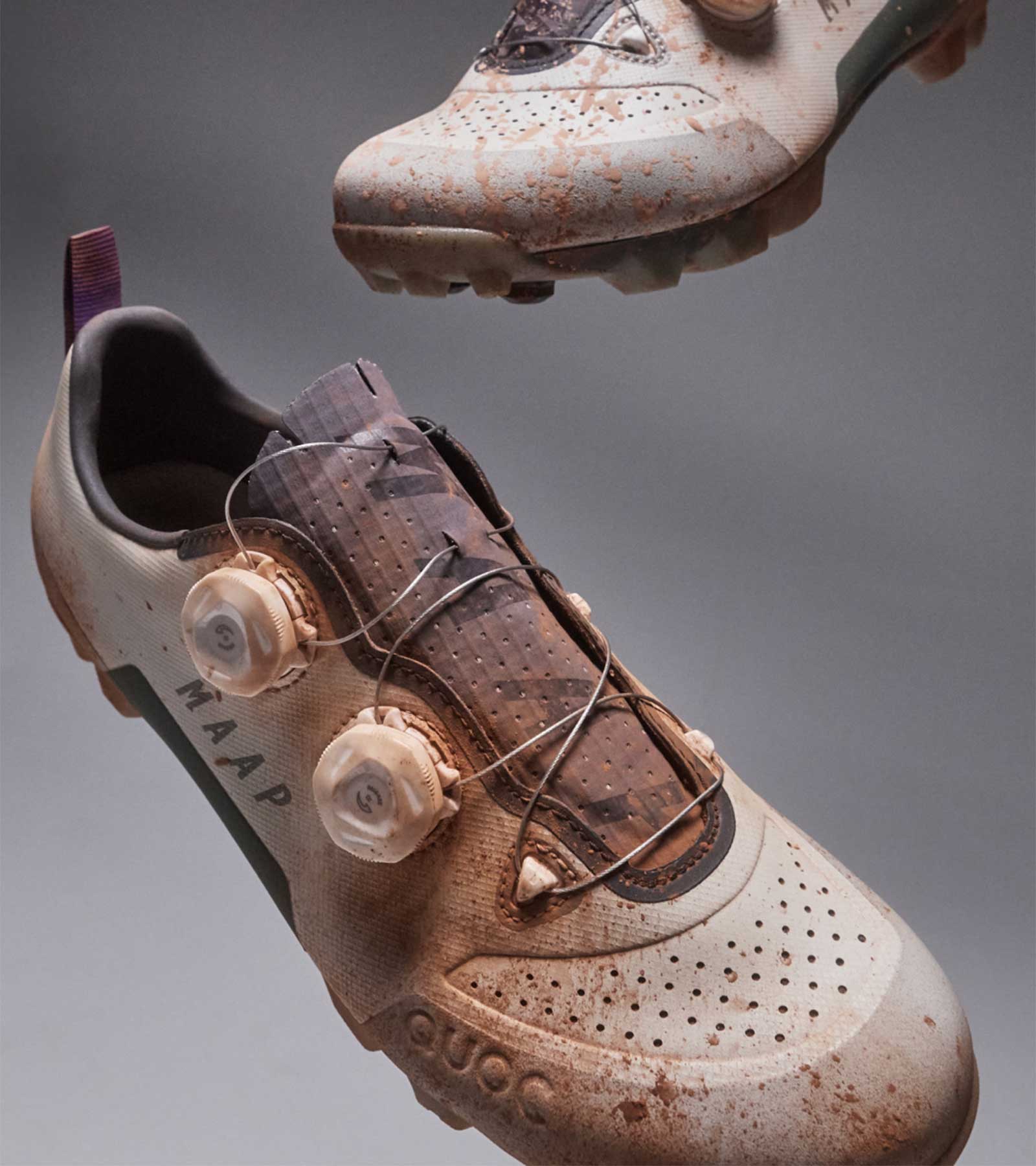
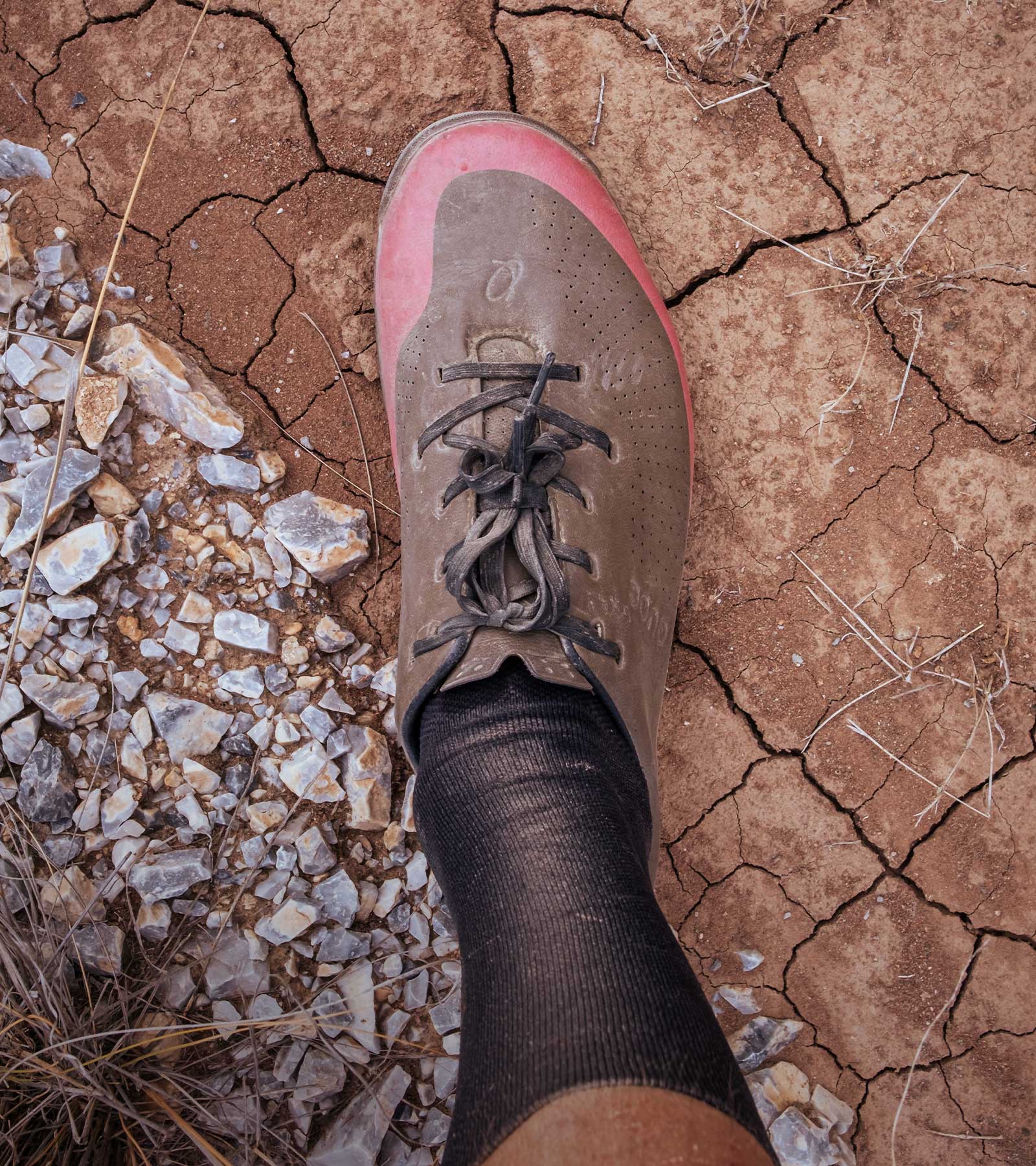

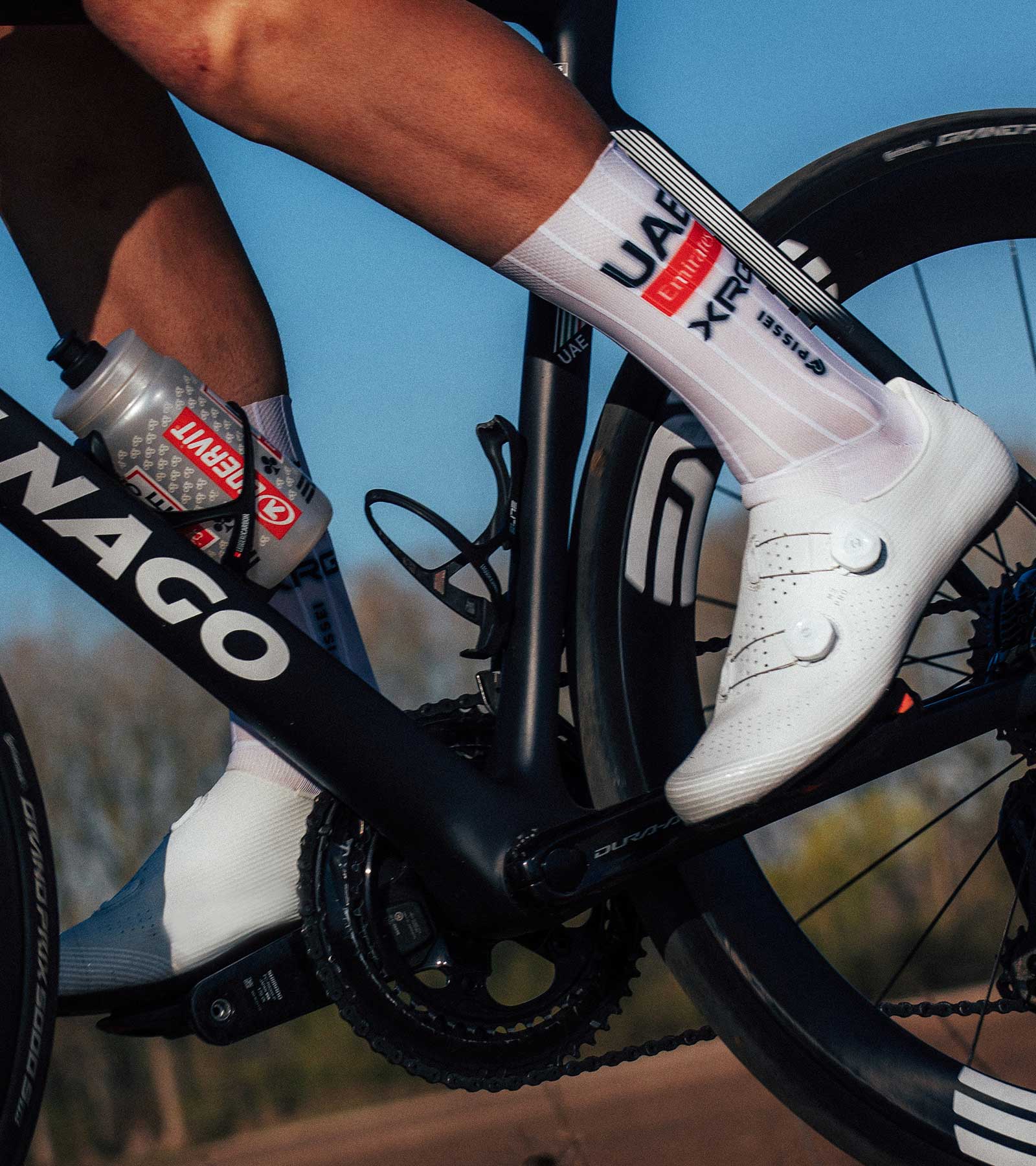
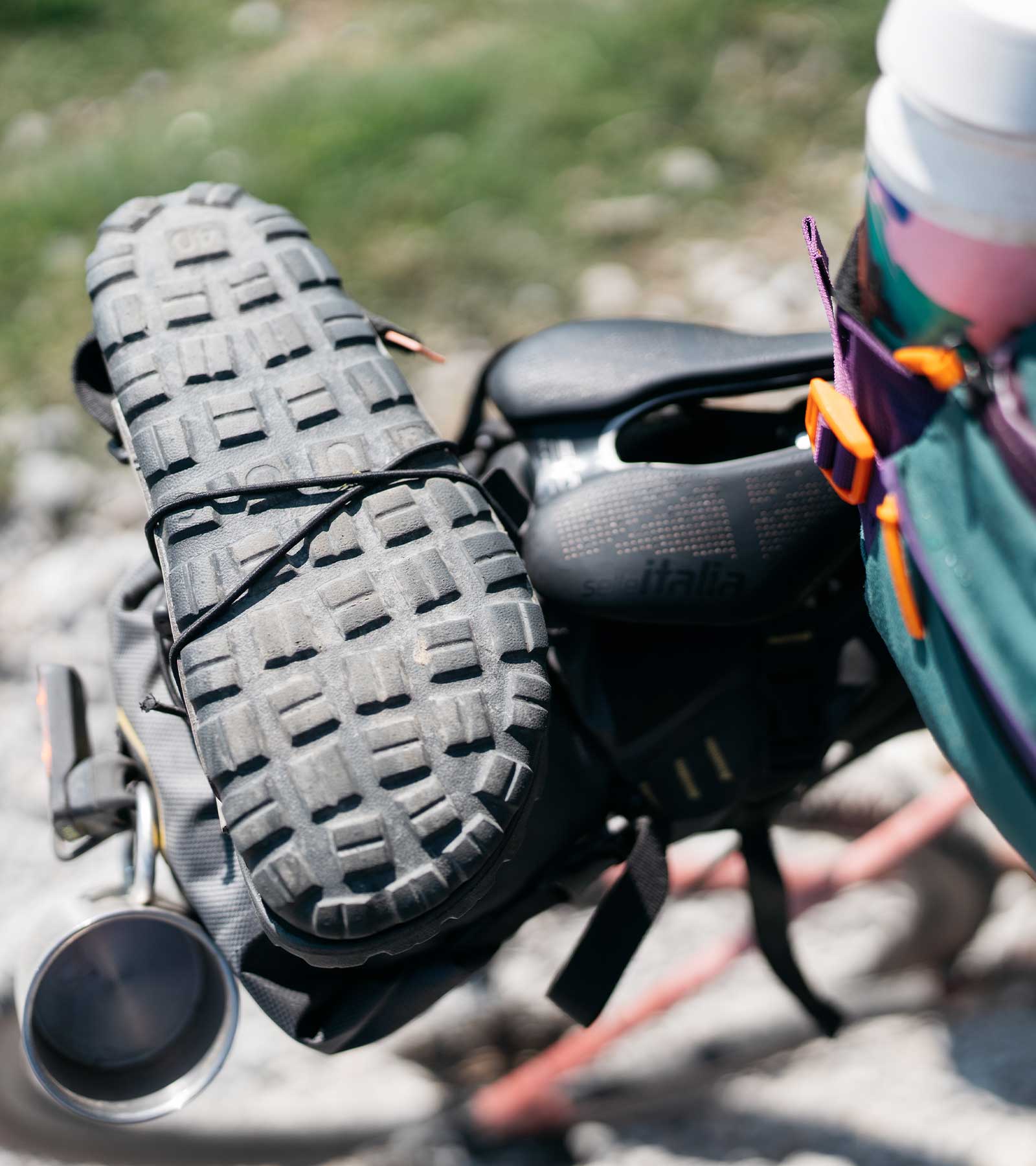
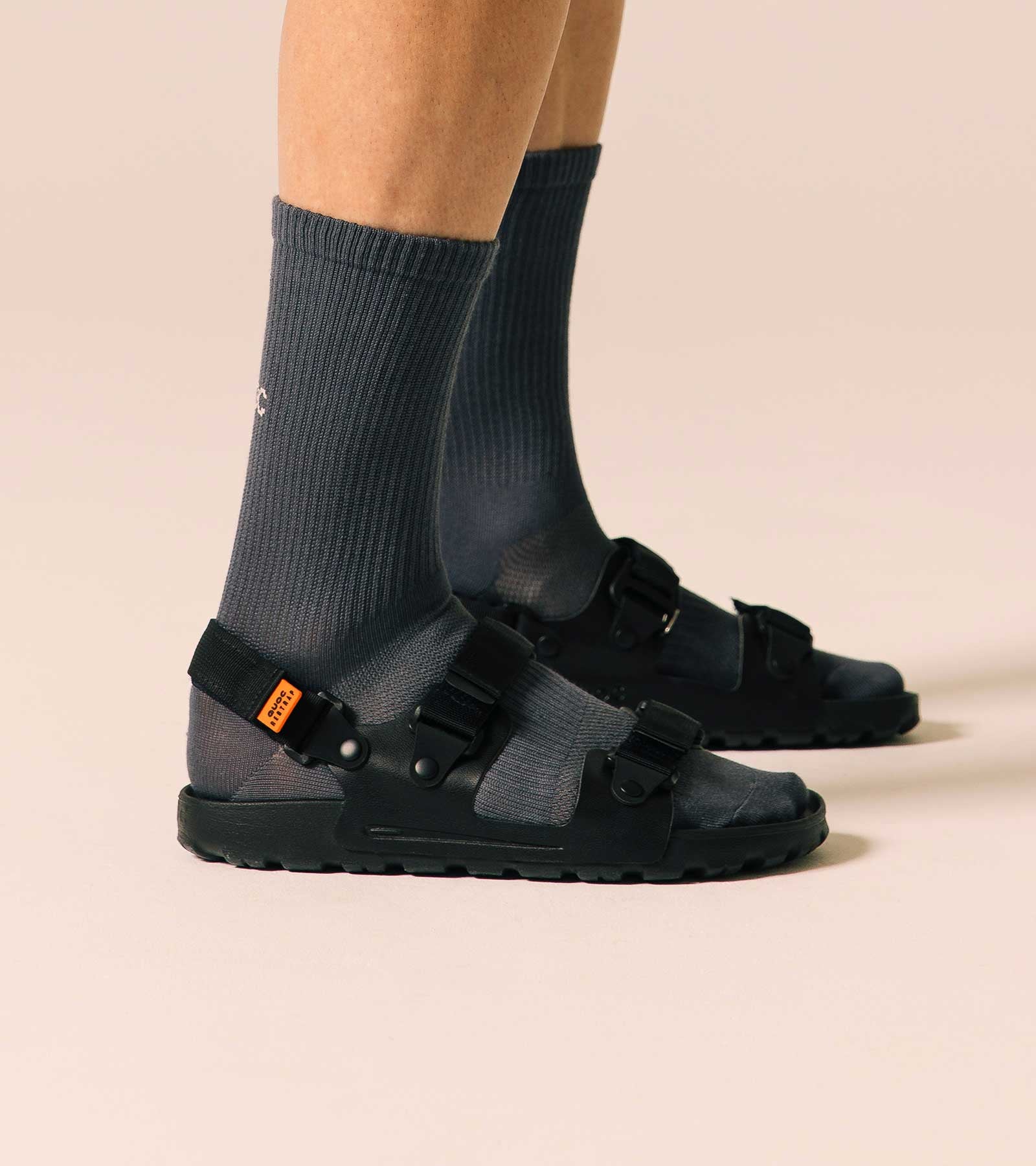
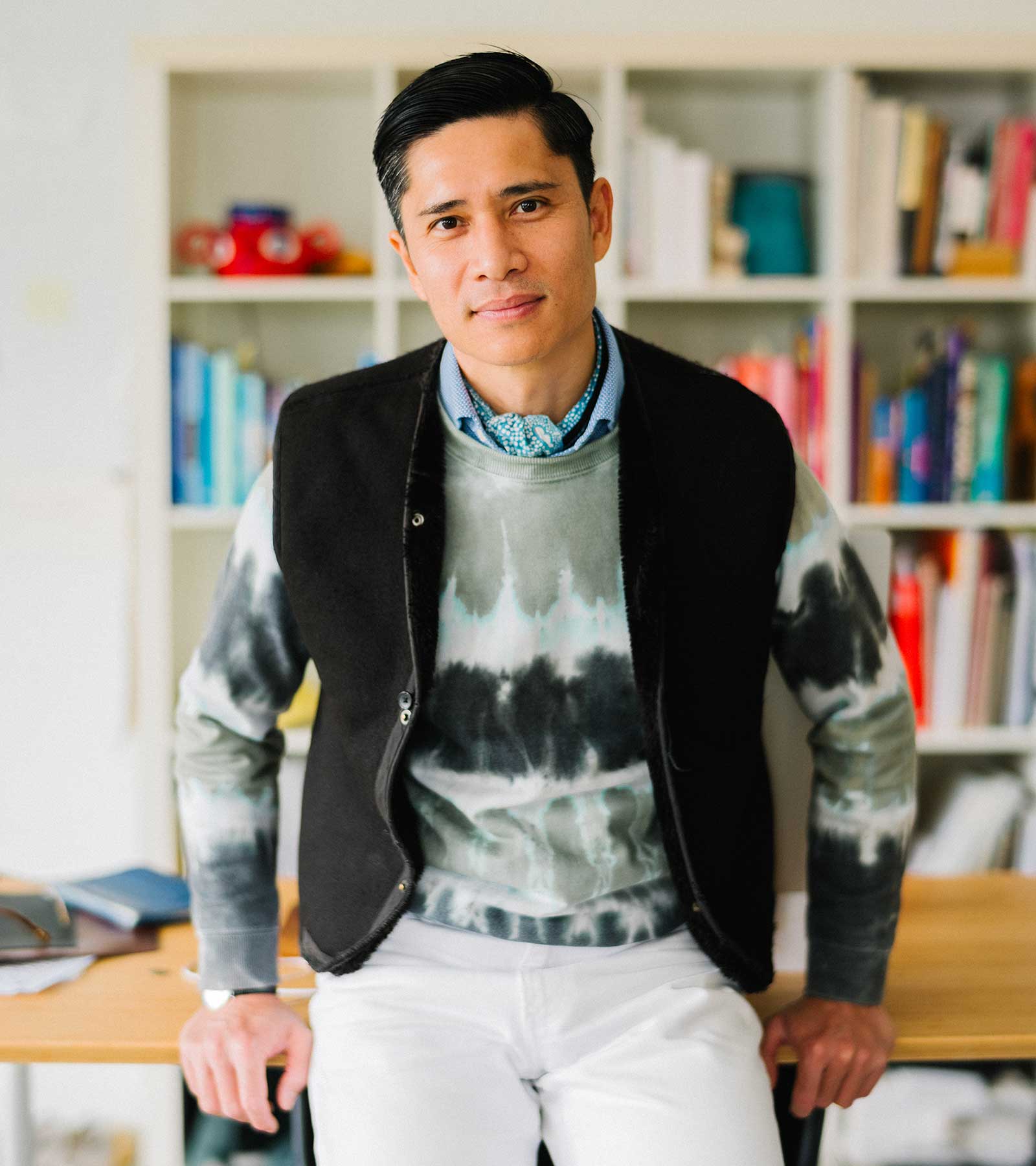
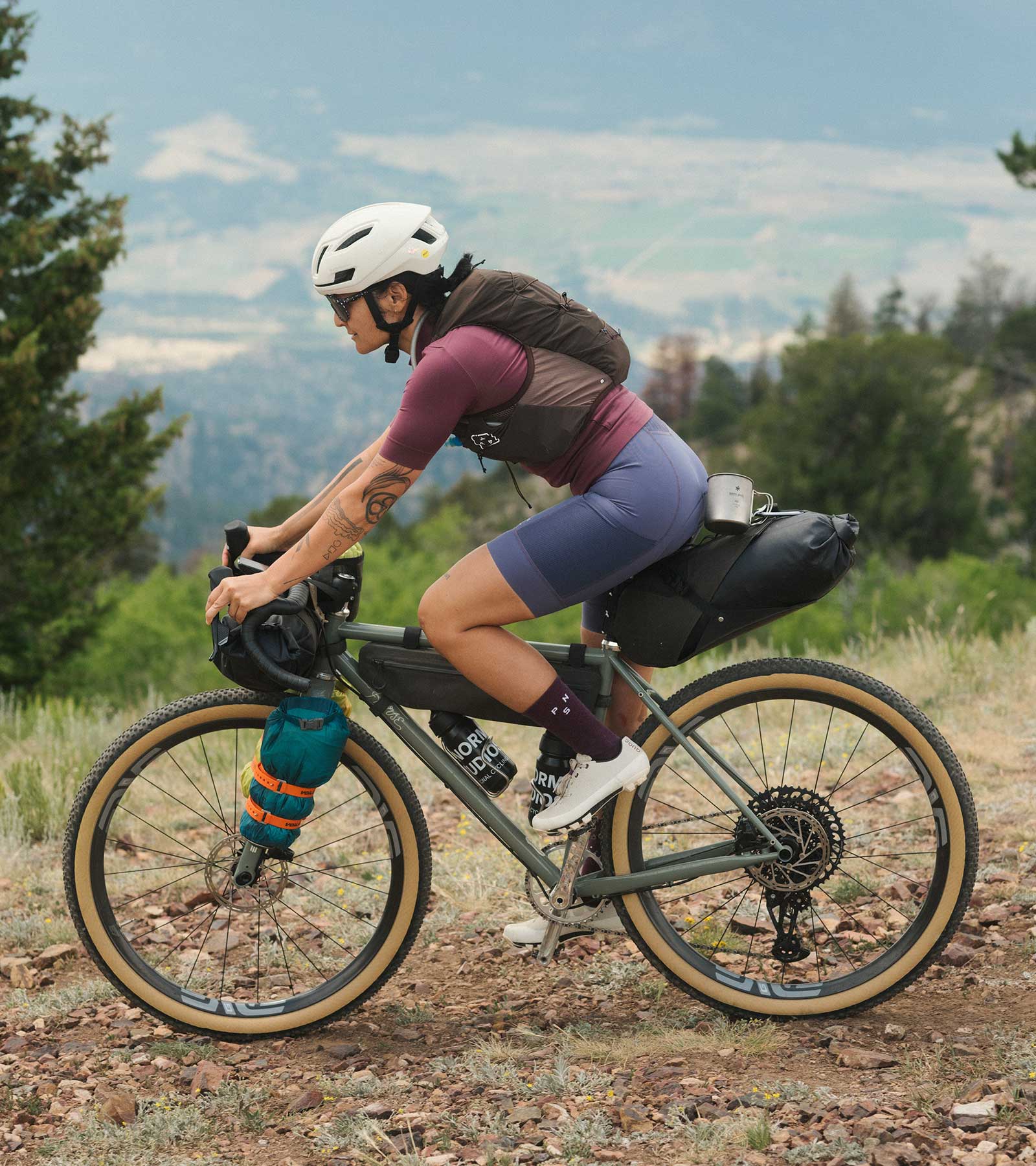






Leave a comment
This site is protected by hCaptcha and the hCaptcha Privacy Policy and Terms of Service apply.